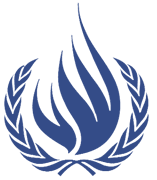Nowhere else in the world have recent attacks on the rights of women and girls been as widespread, systematic and all-encompassing as in Afghanistan.
conversations with women
and girls highlighted their
We saw repressive conditions –
yet our conversations with
women and girls highlighted their
resilience and strength.
The international community must remain engaged with Afghan women and support accountability for the serious human rights violations that are occurring. ‘Talk to us, not about us.’
*Survey: Impact of Taliban Edicts on Afghan Women’s Economic Conditions and Mental Health, March 2023. Women’s Voices for an Inclusive and Sustainable Peace. BISHNAW-WAWRA, Organization for Policy Research and Development Studies.
Systemic gender-based discrimination
Every person has a fundamental right to equality and non-discrimination, including the right not to experience any distinction on the basis of sex and/or gender.
The de facto authorities claim that they respect the treaties ratified by Afghanistan in accordance with sharia law, a vague statement that does not clarify their relation to international human rights law.
They perpetuate the most extreme forms of gender-based discrimination and generalised censorship through restrictive edicts targeting women and girls, the abolition of legal protections and accountability mechanisms for gender-based violence, and the ongoing denial of rights.
Definitions
Maharam, or mahram:
A family member with whom marriage is unlawful, and around whom a woman does not need to wear hijab.
Baad marriage:
Marrying a woman or girl to someone as blood price or to achieve peace with another family.
Gender persecution and apartheid
The Taliban is punishing those who transgress its rights-violating edicts, enforcing severe deprivation of fundamental rights through acts or crimes of violence, such as arbitrary detention, torture, or inhuman or degrading treatment.
The experts recommend that the de facto authorities:
- Ensure the compliance of Afghanistan with its international human rights obligations by rescinding all discriminatory edicts and instructions issued since August 2021 that specifically target women and girls.
- Ensure equal representation and meaningful participation of women and girls, from all religious and ethnic groups, in all decision-making processes affecting their lives.
- Desist from committing threats of or acts of violence, including arbitrary detention, sexual abuse, or any form of torture, ill-treatment or punishment against women and girls for allegedly violating the edicts or for protesting peacefully.
- Investigate cases of violence against women, including women protesters and prisoners, bring perpetrators to justice and provide reparations.
- Immediately restore equal access to quality education for girls and women at all levels.
- Allow schools and universities to unconditionally accept female students in all courses and reinstate all female teachers.
- Remove all restrictions and barriers to women’s rights, including repealing the imposition and enforcement of compulsory dress codes and maharam, both generally and specifically in relation to employment, education and freedom of movement.
- Immediately restore the right of women to work for the United Nations and international NGOs, and in the civil service.
- Take steps to promote women’s active participation in public life, the economic sector, humanitarian operations, development programmes and recovery efforts, and in the administration of justice.
- Restore legal protections and the fundamental rights of women and girls by respecting the legal framework in force prior to August 2021, including the Law on the Elimination of Violence against Women and the Civil Code.
- Reinstate the former judiciary, the specialised courts, and women’s police units and shelters that were created to assist survivors of gender-based violence.
- Support free and independent media and civil society by opening up space for civil society activists, journalists and human rights defenders, especially women, to exercise their legitimate rights without intimidation, harassment, fear of detention or prosecution in accordance with international human rights protections and standards on freedom of expression, assembly and association.
- Ensure that women and girls have access to the full range of quality health services, including sexual and reproductive health services and information, paying specific attention to the additional barriers faced by rural women and to the mental health needs of all women and girls.
- Take steps to establish a gender-equal intra-Afghan reconciliation process to determine the country’s future, fully inclusive of the country’s ethnic and religious diversity, including the drafting of a new constitution and legal framework reflecting the aspirations of the people, their historical, social and cultural context, and protecting all their rights, including the recognition of women’s and girls’ human rights and accountability for serious human rights violations and crimes.
- Continue to engage constructively and facilitate visits to the country by the Special Rapporteur and other United Nations human rights mechanisms, and with the Committee on the Elimination of Discrimination against Women.
The experts recommend that States:
- Ensure that human rights of women and girls in Afghanistan are central to all policy decisions and engagement with the de facto authorities, in accordance with the recommendations above.
- Ensure the representative, equal and meaningful participation of Afghan women in all deliberations concerning the country’s future, including while defining the international community’s policies towards the de facto authorities.
- Mandate a report on gender apartheid as an institutionalised system of discrimination, segregation, humiliation and exclusion of women and girls. Develop further normative standards and tools, and galvanise international legal condemnation and action to end gender apartheid and ensure it is not repeated.
- Support, with long-term flexible funding among other means, women-led organisations operating inside Afghanistan, including new businesses and civil society organisations working on women’s rights and gender equality.
- Take all possible steps to support access to education for all girls.
- Fulfil the calls made by the United Nations for support to address the humanitarian and human rights crises facing Afghanistan, while consistently maintaining a unified and principled approach, and ensuring that marginalised groups receive adequate attention.
- Consult Afghan women as equal partners to inform policy priorities and decision-making, amplify advocacy led by Afghan women inside the country, and ensure that their voices inform the work and decisions of the international community and humanitarian organisations.
- Grant support and protection to all Afghan women and girls who are outside Afghanistan, and take measures to ensure their long-term security, including by granting them refugee, protective or regular status, facilitating their safe resettlement and expanding the provision of educational scholarships and mental health services.
- Take measures to ensure that gender persecution against women and girls in Afghanistan is fully investigated so that perpetrators and complicit actors can be held accountable.
- Support international and Afghan civil society justice-seeking efforts for Afghan women and girls for violations of their human rights, including through the International Criminal Court, the International Court of Justice, universal jurisdiction and all applicable human rights mechanisms.
- Keep the situation of women and girls high on the international agenda and continue to create opportunities for Afghan women to address the bodies of the United Nations.
- Support further collaboration among thematic special procedures and the Special Rapporteur, including joint follow-up by the Working Group on discrimination against women and girls on the recommendations made in the present report.
The experts recommend that the United Nations:
- Ensure a unified and principled approach based on human rights when engaging with the de facto authorities and within all United Nations entities and agencies, fully recognising the complementarity of international human rights law, international humanitarian law and international criminal law.
- Maintain a commitment to the secure employment of female Afghan staff and ensure ethnic diversity.
- Ensure women’s equal and meaningful participation in different forms of dialogue with the de facto authorities.
- Establish a platform for women’s direct engagement.
- Take measures to protect women human rights defenders from reprisals.
- Continue to take concrete steps towards supporting protection from and accountability for the grave and systematic violations of women’s and girls’ human rights.
- Continue to call for the reinstatement and enforcement of provisions that protect women and girls, and which criminalise numerous violations of their rights.
- Include women from Afghan civil society as equal partners to inform planning, programming, advocacy and policy priorities.
- Prioritise gender-sensitive assessments to understand the specific needs and obstacles that women and girls in situations of heightened vulnerability or disadvantage face, and duly address them.
- Ensure that Afghan women and girls have due access to United Nations spaces, and that their voices and realities, especially of those most marginalised, are duly considered.
Here’s how you can make a difference
All actions contribute to change.
Here are four you can take today.
SHARE
Share this report
Click the ‘share’ links below to help us spread the word and raise awareness.
ASK
Ask your government to denounce the widespread and systemic oppression of women and girls in Afghanistan and support accountability efforts
Don’t have the words?
Here’s a letter template you can use.
SUPPORT
Join a movement
Get involved with or donate to women-led organisations working on human rights and gender equality, in Afghanistan or elsewhere. Various petitions call for a legal framework for gender apartheid – consider adding your voice to those.
LEARN
Connect with us
Follow the Working Group on Discrimination Against Women and Girls on Facebook and Twitter/X, and the Special Rapporteur on Human Rights in Afghanistan on Twitter/X, as well as other relevant UN human rights Special Procedures to keep up with news from the UN and find out how you can help.



